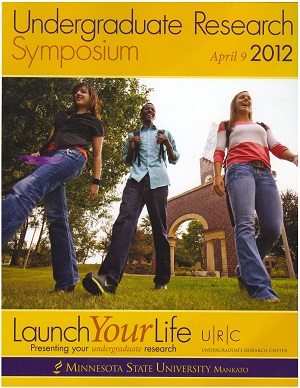How Do People Think About Their Decisions: Understanding How Scenario Domain Influences the Framing Effect
Location
CSU 202
Start Date
9-4-2012 11:00 AM
End Date
9-4-2012 12:00 PM
Student's Major
Psychology
Student's College
Social and Behavioral Sciences
Mentor's Name
Emily Stark
Mentor's Department
Psychology
Mentor's College
Social and Behavioral Sciences
Description
The framing effect research of Tversky and Kahneman (1981) has shown that people prefer certain options when they are worded as gains, but that people prefer riskier options when those options focus on potential losses. Also, this framing effect is both more likely and stronger when participants respond to scenarios about potential loss of human life, compared to scenarios about property loss.
However, we do not know why people respond differently to human life compared to property scenarios. In the current study, researchers use a novel open-ended thought listing procedure to further understand the why behind the framing effect. After reading human life and property decision scenarios with gain and loss framed options, 137 participants listed their thoughts or feelings regarding their decision, and then chose one of the options. Their thought listings were coded into categories focusing on mention of emotion, concern about risk, or logical considerations. The current research findings were consistent with previous research regarding the influence of the framing of the scenarios; there was a significant framing effect for the human life scenarios, but not for the property scenarios. The current research also found significant differences between the human life and the property scenarios in the coding of emotion responses (p
How Do People Think About Their Decisions: Understanding How Scenario Domain Influences the Framing Effect
CSU 202
The framing effect research of Tversky and Kahneman (1981) has shown that people prefer certain options when they are worded as gains, but that people prefer riskier options when those options focus on potential losses. Also, this framing effect is both more likely and stronger when participants respond to scenarios about potential loss of human life, compared to scenarios about property loss.
However, we do not know why people respond differently to human life compared to property scenarios. In the current study, researchers use a novel open-ended thought listing procedure to further understand the why behind the framing effect. After reading human life and property decision scenarios with gain and loss framed options, 137 participants listed their thoughts or feelings regarding their decision, and then chose one of the options. Their thought listings were coded into categories focusing on mention of emotion, concern about risk, or logical considerations. The current research findings were consistent with previous research regarding the influence of the framing of the scenarios; there was a significant framing effect for the human life scenarios, but not for the property scenarios. The current research also found significant differences between the human life and the property scenarios in the coding of emotion responses (p
Recommended Citation
Christian, Anthony. "How Do People Think About Their Decisions: Understanding How Scenario Domain Influences the Framing Effect." Undergraduate Research Symposium, Mankato, MN, April 9, 2012.
https://cornerstone.lib.mnsu.edu/urs/2012/oral-session-07/1




